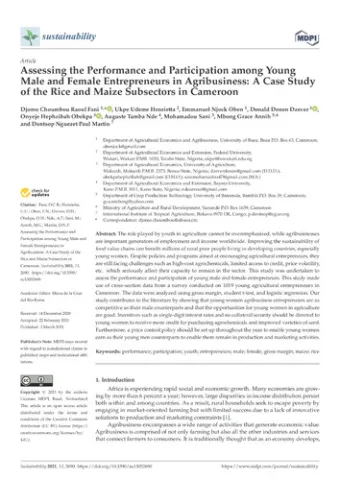Assessing the performance and participation among young male and female entrepreneurs in agribusiness: a case study of the rice and maize subsectors in Cameroon

Abstract
The role played by youth in agriculture cannot be overemphasized, while agribusinesses are important generators of employment and income worldwide. Improving the sustainability of food value chains can benefit millions of rural poor people living in developing countries, especially young women. Despite policies and programs aimed at encouraging agricultural entrepreneurs, they are still facing challenges such as high-cost agrochemicals, limited access to credit, price volatility, etc. which seriously affect their capacity to remain in the sector. This study was undertaken to assess the performance and participation of young male and female entrepreneurs. This study made use of cross-section data from a survey conducted on 1019 young agricultural entrepreneurs in Cameroon. The data were analyzed using gross margin, student t-test, and logistic regression. Our study contributes to the literature by showing that young women agribusiness entrepreneurs are as competitive as their male counterparts and that the opportunities for young women in agriculture are good. Incentives such as single-digit interest rates and no collateral security should be directed to young women to receive more credit for purchasing agrochemicals and improved varieties of seed. Furthermore, a price control policy should be set up throughout the year to enable young women earn as their young men counterparts to enable them remain in production and marketing activities.
